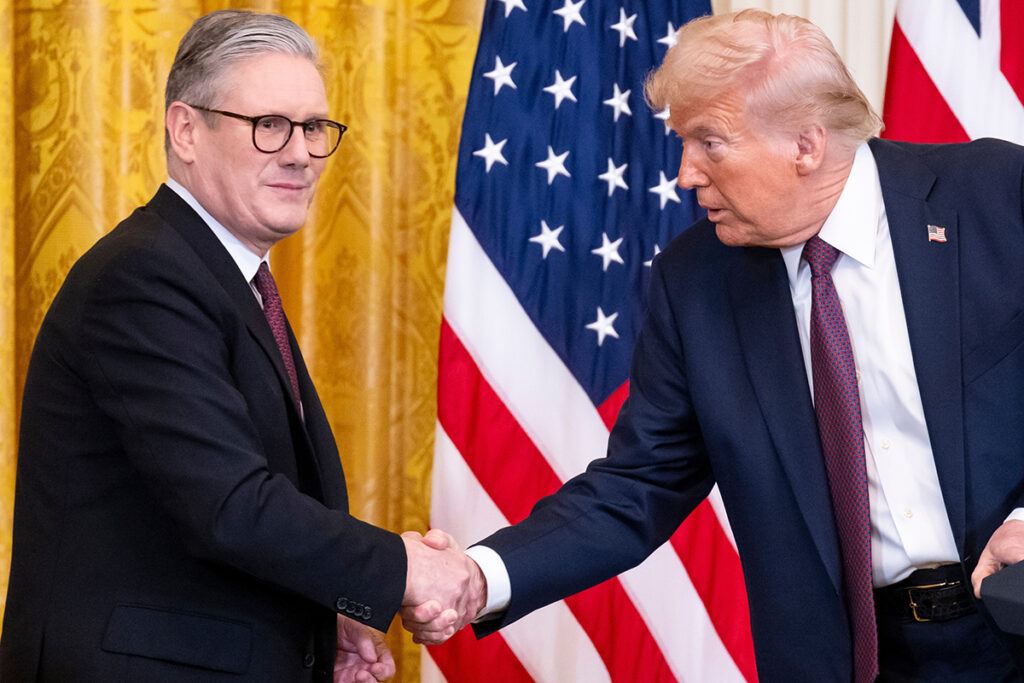No Trade Exemption in Sight
The UK government expects to be hit by US tariffs on car imports starting Wednesday, as negotiations with President Donald Trump’s administration fail to yield a last-minute deal. Washington will impose a 25 percent import tax on cars and auto parts from all countries, regardless of their trade imbalances with the US.
Despite ongoing discussions, Downing Street now concedes that it is unlikely to secure an exemption for British goods. A government spokesperson confirmed that talks on an economic agreement had been “constructive” but said they would likely continue beyond the tariff deadline.
Prime Minister Keir Starmer is reportedly preparing for all outcomes, including retaliation. “The prime minister has been clear he will always act in the national interest,” said his official spokesman. “We expect the UK to be impacted by the announcement, alongside other countries.”
Although the government insists it will respond calmly and pragmatically, it has not ruled out retaliatory measures. The spokesperson noted, “We rule nothing out in response,” underscoring the seriousness of the situation.
Political Fallout at Home
The looming tariffs have triggered sharp criticism from opposition parties. Andrew Griffith, the Conservative shadow trade secretary, called the development “a hammer blow” to British manufacturers and questioned Labour’s handling of trade talks. “If this is what success looks like, I wouldn’t want to see failure,” he said, urging the prime minister to “rekindle” a stalled US-UK trade deal.
Liberal Democrat leader Sir Ed Davey went further, calling for immediate retaliation in line with Canada and the European Union. “Just asking nicely doesn’t work with Trump,” he said. “We must stand tall with our allies and be prepared to impose reciprocal tariffs, even on Teslas.”
On Sunday, Sir Keir Starmer held a phone call with President Trump in what Downing Street described as “productive negotiations.” However, no breakthrough was achieved. Starmer met Trump in person at the White House in February, where both leaders hinted at a “real trade deal,” though no concrete progress has followed.
Government sources argue that Britain’s trade relationship with the US is relatively balanced compared to other nations, suggesting tariffs are unjustified in the UK’s case. But this has done little to shift the American position.
Economic Impact Could Be Severe
The potential economic fallout from a transatlantic tariff war is already raising alarms. According to the Office for Budget Responsibility (OBR), a full-scale trade conflict would significantly reduce UK growth and limit Chancellor Rachel Reeves’ ability to meet her own fiscal targets.
In its latest forecast, the OBR warned that GDP could be 0.6 percent lower this year and 1 percent lower next year if the UK responds with reciprocal tariffs. Even if Britain chooses not to retaliate, the economic hit remains considerable, with GDP still expected to fall by 0.4 percent in 2025 and 0.6 percent in 2026.
This loss of economic headroom could force the chancellor to raise taxes or cut spending to avoid breaching borrowing rules. The emergency budget presented earlier this year did not account for potential US tariffs, raising concerns about its resilience in the face of new trade shocks.
The automotive industry is particularly exposed. UK car exports are worth around £7.6 billion annually, and the United States is the country’s second-largest market after the European Union. Luxury brands such as Rolls-Royce and Aston Martin are expected to be hardest hit by the tariffs intended to protect US manufacturers. Still, they could drive up prices for American consumers.
If the UK responds in kind, potential targets include high-profile US exports such as Harley-Davidson motorcycles. However, the government has not yet announced any specific countermeasures.
The situation adds further complexity to the UK’s post-Brexit trade strategy, particularly as calls grow louder for closer ties with the EU to offset uncertainty with the US. For now, the UK faces the prospect of new economic headwinds and little sign of immediate relief.


